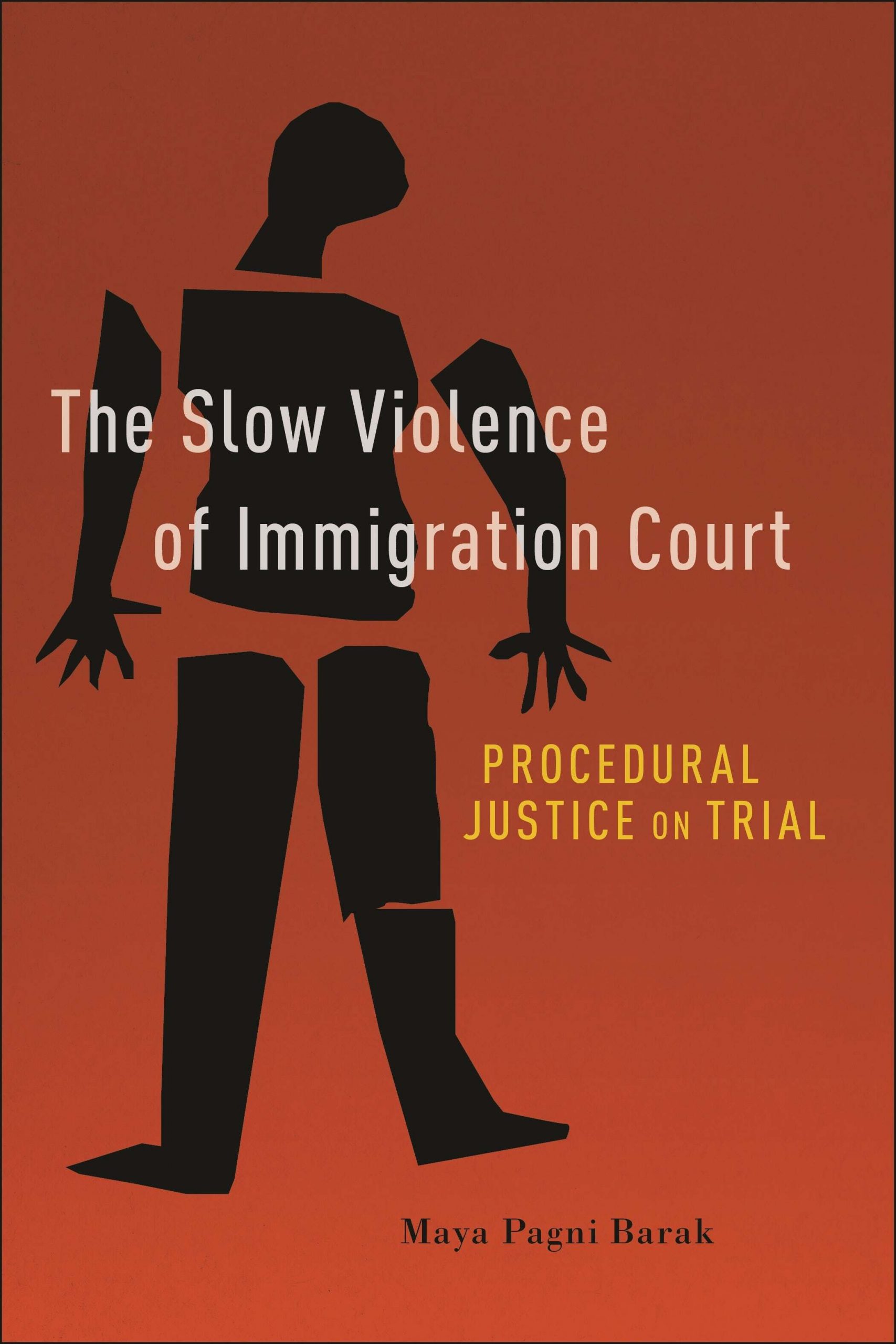It cannot be denied that immigration court—and the immigration system, for that matter—lack the due process found in the criminal justice system. However, the problem with deportation is not procedural.
The belief that injustices in the U.S. immigration system can or should be resolved through enhanced processes and the allocation of procedural protections stems from a “politics of rights” that pervades U.S. legal consciousness and that has come to dominate grievances and disputes related to discrimination, inequality, and injustice. Within this mindset, immigration activists, practitioners, and scholars alike have advocated for enhanced due process rights in immigration court. Such calls include demands for the right to appointed counsel for indigent immigrants and the elimination of mandatory detention among other reforms. Yet emphasis on rights mobilization—especially when modeled after the criminal justice system—is misguided.
A rights declaration—by the courts or the legislature—is not tantamount to meaningful change. Rights require awareness. Rights cannot be demanded if their existence is unknown. Rights require respect. Rights cannot be upheld if those responsible for doing so do not see their value. Rights require resources. Rights cannot be asserted without enforcement mechanisms—and funding. Finally, rights are only as powerful as is permitted by the legal system within which they operate. Indeed, as Stuart Scheingold contends in his 1974 book The Politics of Rights: Lawyers, Public Policy, and Political Change, rights declarations are unlikely to be the most optimal means of ensuring tangible social change. Rights-based approaches to social change may lead down a fruitless path, resulting in rights that are difficult to enforce or, worse, that mask continued inequity and injustice.
Certainly, persuasive arguments abound as to why immigrants merit additional due process protections within the immigration system, including the right to indigent defense. That immigrants who cannot afford an attorney are made to represent themselves in immigration court demonstrates just what a farce the U.S. immigration system really is. Immigrants are expected to navigate a legal system that is foreign to them in a language that is often also foreign (albeit with a right to interpretation). There are no special provisions for the representation of minors. Although uncommon, children as young as two years old have been made to represent themselves in immigration court. It is not surprising that immigrants tend to fare better in immigration court when represented by an attorney than when representing themselves pro se.
The mandatory detention of individuals for civil matters is equally problematic. Immigration detention facilities are generally modeled after U.S. jails. In many cases, detention facilities, jails, and prisons are, indeed, one and the same, as the federal government frequently contracts with state and for-profit correctional facilities to house immigrant detainees. Under some such arrangements, immigrant detainees are housed with the general population and thus treated as convicted criminals who are incarcerated as a form of punishment. Abuses, health and safety issues, and other rights violations have long been documented in U.S. immigration detention facilities. Moreover, contrary to the U.S. government’s position, ample research demonstrates that most immigrants do not pose a flight risk and appear in immigration court for their deportation hearings when released on bond under community supervision. Immigration detention practices, as well as the conditions found in U.S. detention facilities, are often used to argue in favor of strengthening immigrants’ procedural rights in the immigration system.
Indeed, the procedurally inclined might gravitate toward any number of relatively simple, apolitical changes to immigration court practice. For example, in-person hearings could replace the standard of holding hearings via teleconferencing. And for cases where that proved impossible, courtroom technology could be modernized so that detained immigrants can more closely watch speakers, aiding in the comprehension of nonverbal communication. The immigration court could also end its widespread reliance on interpreters working on private contract and return to hiring staff interpreters at each court. At a minimum, standards for immigration court interpreters could match those found in criminal courts.
Although modest, such practical reforms would likely have huge impacts on both the functioning of the court and the experiences of those who face deportation or who work in and for the court. The creation of a federally funded immigration public defender system, as well as the elimination of mandatory immigration detention, are two other significant reforms that could also address some procedural injustices that are prevalent in the immigration system. Immigrants with legal representation are far more likely to obtain relief from deportation than those without representation.
More from our decarceral brainstorm
Every week, Inquest aims to bring you insights from people thinking through and working for a world without mass incarceration.
Sign up for our newsletter for the latest.
Newsletter
More relevant to the discussions with immigrants and attorneys I’ve profiled in my work, however, is the assumption that legal representation would afford immigrants protection against procedural injustices in the courtroom. Yet the assumption that legal representation, or any other procedural protections, can stave off the harms of deportation, immigration court, or the immigration system writ large rests upon the myth of rights and the U.S. obsession with procedure. Procedural protections in the criminal justice system may afford an air of fairness and legitimacy—and this may be replicable in the immigration system—but such protections do not guarantee justice. Undeniably, due process rights—such as criminal defendants’ rights to evidentiary discovery, legal representation, and a speedy trial—help to level the playing field when individuals come up against the power of the state.
Still, they do little to address the substantive injustices inherent in the U.S. criminal justice system, which is built upon the legacies of slavery and legalized racial discrimination. It is deeply influenced by neoliberal capitalism. From policing to courts to corrections, rights violations have been well documented. Constitutionally enshrined due process protections have failed to safeguard communities of color and other marginalized groups from disenfranchisement, mass incarceration, over-policing, and wrongful convictions.
Even if procedural reforms (such as enhanced immigration court interpretation and technology practices) or explicit due process protections (such as indigent defense, relief from mandatory detention, and freedom from excessive bail) were to be adopted, enforced, and respected in the immigration system, it is unlikely that deportation outcomes would be significantly altered. Questions regarding the quality of representation and the resources allocated to immigration indigent defense systems would persist. Moreover, although it is true that immigrants generally fare better in the immigration system when represented by attorneys, emerging literature suggests that they may actually be worse off with poor-quality legal representation than if they were to represent themselves.
Similarly, guaranteeing immigrants the right to a bond hearing as part of the deportation process would likely reduce the number of immigrants in detention, but it would also pave the way for increased exploitation at the hands of private interests, including the bond and community supervision industries. Moreover, the provision of high-quality interpretation and the elimination of problematic telephonic and videoconferencing might make deportation hearings run more smoothly, but they would not create new categories of relief from deportation or expand the criteria by which immigrants qualify for relief.
Ultimately, the myth of rights is pervasive, yet it is not difficult to unmask. There are nearly endless examples of the failures of rights in the U.S. criminal justice and immigration systems. And when it comes to immigration court specifically, one need look no further than the Fifth Amendment to reveal the empty promise of rights: It guarantees immigrants a constitutional right to a “fundamentally fair” deportation hearing. But deportation hearings are fundamentally unfair. Most immigrants who find themselves facing deportation have no legal recourse to stop it, attorney or not. The vast majority of immigrants who meet the criteria for deportation are not eligible for any form of relief. Neither the circumstances of one’s hearing (e.g., detained versus non-detained, represented versus unrepresented) nor the treatment one receives in court (e.g., respectful versus disrespectful, biased versus unbiased) change this.
Procedural injustices within immigration court are not merely the result of insufficient due process. Instead they are symptomatic of substantive structural inequalities and inadequacies with the immigration system writ large. The U.S. immigration system sets up immigrants to lose almost every time. From exclusionary policies restricting authorized immigration and limiting immigrants’ ability to participate in U.S. society to draconian policies that criminalize immigrants for even the most minor infractions, immigrants are caught in an uphill battle. Due process protections govern the rules of the game, ensuring that everyone plays fairly. Yet what good are rights if the game is rigged?
Despite a rapidly expanding body of “second wave” literature, many scholars of procedural justice continue dedicating their time to debates over the validity of this or that variation on procedural justice constructs, operationalization, and models. Such debates are valid: How we conceptualize, define, and operationalize procedural justice matters. Still, it is possible for this to become a trap, wherein researchers become so focused on conceptualizing and operationalizing a construct that they fail to see the forest for the trees.
As Mariana Valverde, professor of criminology at the University of Toronto’s Faculty of Law, points out, “Today as in the past, much of our education consists not in gaining the skills needed to undertake innovative concrete and dynamic analyses but rather in learning how to classify and categorize, like entomologists.” She continues, “Our first commitment is not promoting the prestige or the theoretical rigour of our chosen disciplines or fields—much less our chosen neologisms—but rather understanding the world we live in.”
Procedural justice studies are intended to help us better understand how fairness operates in the world and what implications this holds for society. Yet much procedural justice literature offers a homogenized, utilitarian, whitewashed version of fairness. This version of fairness has been severed from culture, history, identity, politics, and people. It has been severed from the very things that rich and meaningful sociological inquiry demands. This version of fairness has the power to make entire groups of people invisible, to erase history and mask deep divisions, inequalities, and injustices.
Without a sincere and intentional reimagining of procedural justice, we risk its weaponization. We risk a world in which procedural justice is little more than a tool for compelling approval of, and compliance with, unjust legal systems—particularly with respect to systems that have been built to oppress historically marginalized groups, including communities of color and immigrants.
As explorations of procedural justice in immigration court make clear, fair process matters, but fair laws, fair legal systems, and fair societies matter more. We must humanize procedural justice. We must ensure that procedural justice research is inclusive of diverse perspectives, participants, and scholars. Specifically, scholars of procedural justice must endeavor to “center the margins” or, as critical criminologist Rita Shah explains, “to draw attention to those marginalized by social processes that reveal themselves based on dis/ability, gender identity, race, religion, sexual orientation, and socioeconomic status, among others, and the intersection of these identities.” More than this, however, we must interrogate arguments equating fair process with justice. We must challenge policies and practices that use procedural justice as a mechanism for social control. Ultimately, we must integrate substantive justice with procedural justice. In an era of growing inequality, social unrest, and political instability, we have little choice.
Excerpt from The Slow Violence of Immigration Court: Procedural Justice on Trial by Maya Pagni Barak, reprinted with permission from NYU Press.
Image: Krakograff/Unsplash


